How to Identify a Black-Bellied Whistling Duck
Updated: Jul. 25, 2023
This black-bellied whistling duck is expanding its range north into the United States. See what these ducks look like and where to find them.
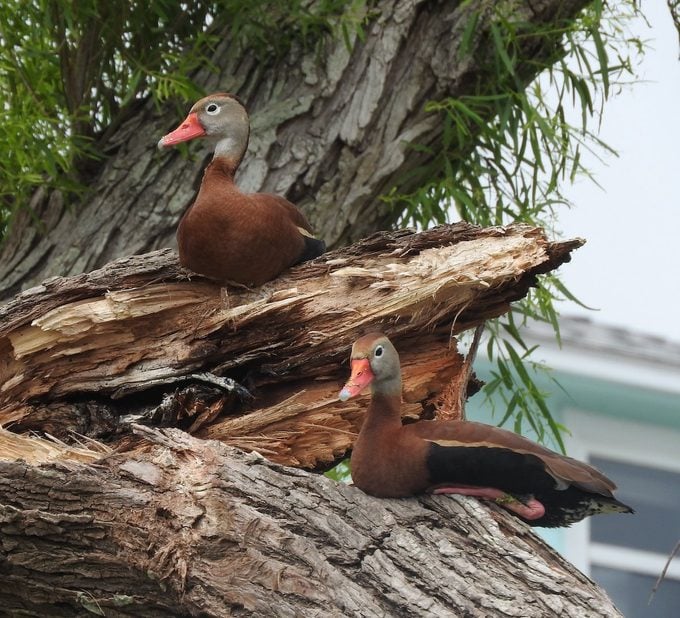
The black-bellied whistling duck (Dendrocygna autumnalis) is a common bird in Central and South America, but in the past decades, it has expanded its range north into the United States. To identify them, look for their pink bills and feet, and yes, black bellies. Males and females look the same.
Did you know: Black-bellied whistling-ducks are more closely related to swans and geese than to true ducks.
Discover 20 types of ducks you should know.
Black-Bellied Whistling Duck Range
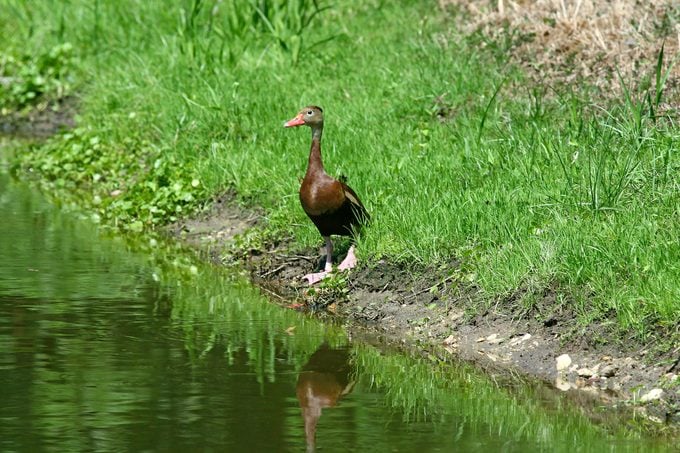
“Can you identify this bird (above)?” asks Birds & Blooms reader Mike Babb of Eufala, Alabama.
Kenn and Kimberly Kaufman: In the past, this would have been a very rare sighting in Alabama. This is a tropical waterfowl called a black-bellied whistling-duck. Fifty years ago, the only ones north of the Mexican border were in Texas and parts of southern Arizona. Since then they have extended their range east to Florida and north through the south-central states.
Wandering flocks are now seen every year throughout the eastern and southwestern United States. A few pairs have been found nesting as far north as Wisconsin and Ohio. So it’s no longer rare where you are, but every sighting adds to its fascinating history of range expansion.
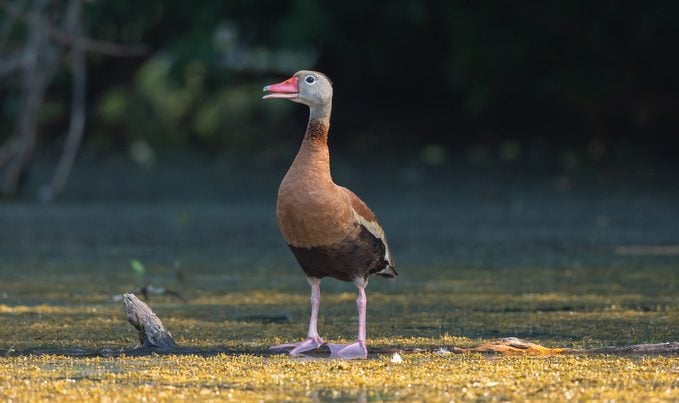
This black-bellied whistling duck (above) showed up in late spring in Milwaukee county, Wisconsin, and stayed several months,” says reader Todd Leech.
Meet the mallard: the most common duck in the world.
What Do Black-Bellied Whistling Ducks Eat?
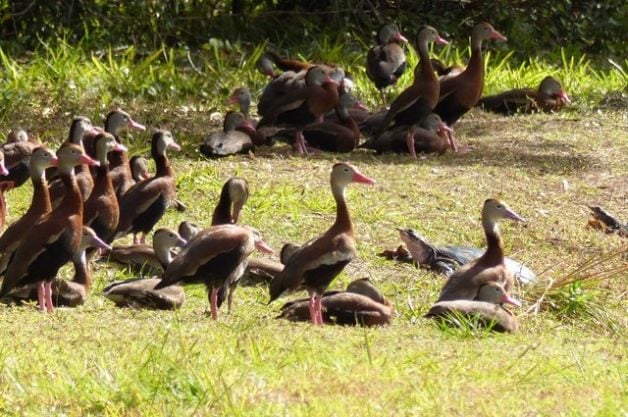
The black-bellied whistling duck eats mainly vegetation. In recent years, the species has taken to eating agricultural crops like corn and rice. This may have led to the northward expansion in its range. Though they primarily forage at night, they may eat at any time of day, often moving across lawns or golf courses near shallow ponds or lakes.
What foods can you feed to ducks?
Nesting Habits
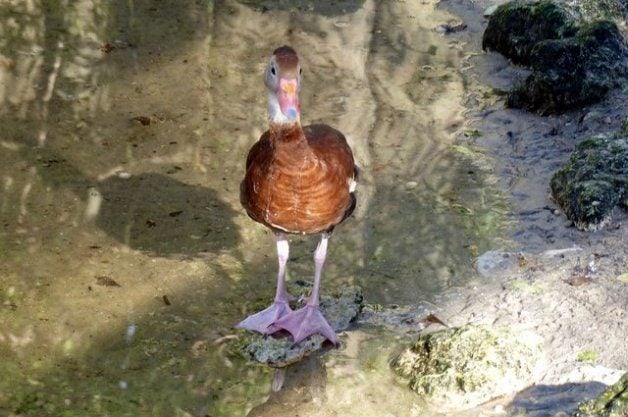
Both parents help raise their ducklings. They form strong mating bonds, nesting in boxes or tree hollows on or near water. They don’t bother building nests but instead lay their eggs on whatever material has accumulated there.
If these ducks live in your area, try building and installing nest boxes to invite them to breed in your yard. The Cornell Lab of Ornithology recommends boxes that are 24 inches high at the front and 20 inches at the back, with an entrance hole about 5 to 6 inches in diameter.
Learn how to identify a wood duck.
Black-Bellied Whistling Duck Call
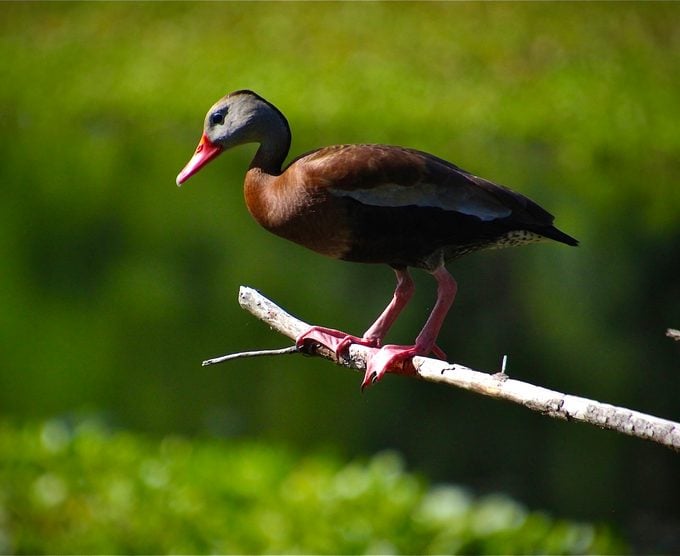
You’ll understand the name whistling duck once you’ve heard their distinctive, high-pitched call. In fact, you’ll often hear these ducks before you see them. But they’re not especially hard to spot due to their habit of forming large groups.
They are also sometimes called tree ducks for their habit of perching in trees.
Next, learn what a northern shoveler looks like.




















